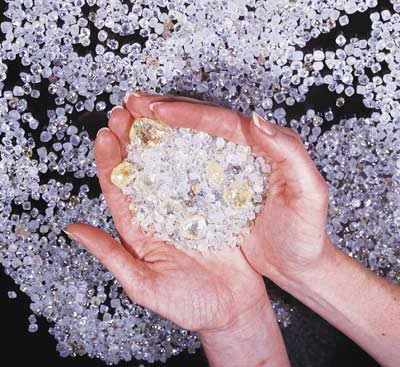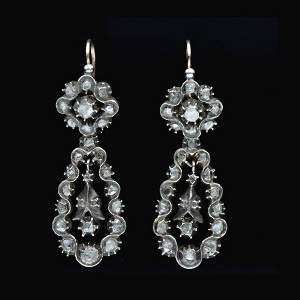Дом (часть первая)
There are three words that native speakers of English often confuse at first in their studies of Russian:
- The first one of those is дома, which is an adverb that means “at home.” It never changes its endings.
- The second is домой, which is an adverb that means “home” in the sense of “homeward/to home.” It never changes its endings.
- The third is дом, which is a noun that means “house” or “building” and occurs in the singular and plural of all six cases.
Today we are focusing on дом, which means “home/building.” As a noun it occurs in all six cases in the singular and plural:
| Sg | Pl | |
| Nom | дом | дома |
| Acc | ||
| Gen | дома | домов |
| Pre | доме | домах |
| Dat | дому | домам |
| Ins | домом | домами |
Since it is a noun, it can be used with prepositions:
| Такси подъехало к дому в два часа ночи. | The taxi drove up to the building/house at two o'clock in the morning. |
| В этом доме живут человек пятьсот. | About five hundred people live in this building. |
| Рядом с этим домом находится почта. | There is a post office next to this building. |
| У дома находится красивый огород. | There is a beautiful garden right next to this building. |
Of course, the noun can also be used without prepositions:
| Наш дом — одиннадцатиэтажный. | Our building is eleven stories high. |
| В Орехове-Борисове столько высотных домов, и они все похожи друг на друга. | In the Orekhovo-Borisovo [region] there are so many tall buildings, and they all look [exactly] like each other. |
| — Ты видишь тот дом? — Какой? — Жёлтый. — Да, вижу. |
“Do you see that building?” “Which one?” “The yellow one.” “Yes, I see it.” |
| — Какие красивые дома! — Да, красивые. Они все были построены после войны. |
“What beautiful buildings!” “Yes, they are beautiful. They were all built after the war.” |
Свобода
Свобода is the Russian word for freedom or liberty. When my family immigrated to America over 20 years ago, it was in search of exactly that; and when we moved to New York, we got to see one of the biggest symbols dedicated to being free.

| Вон она там — Статуя Свободы! | There it is, over there, the Statue of Liberty! |
The adjectival form of свобода is свободный. It is often used in the sense of “available/free.” When you are asking whether someone is free/avaialable for consultation, you usually use the short forms of the adjective, namely свободен, свободна, свободно and свободны:
| Маша свободна по субботам. | Masha is free on Saturdays. |
| Доктор Иванович свободен через час. | Doctor Ivanovich is available in an hour. |
|
Есть билеты на этот рейс? Да, одно место свободно. |
Are there any tickets left for this flight? Yes, there is one open seat. |
Just remember that even though the English translation for свободный is "free" it's not to be confused with бесплатно, meaning "free of charge.
Бриллиант

They say diamonds are a girl's best friend. The Russian word for this girl's multifaceted best friend is бриллиант or in the plural бриллианты. Doesn't the word just sound so shiny and, well, brilliant?
| Мой кавалер подарил мне серьги с бриллиантaми! | My boyfriend gave me diamond earrings! |

| Она купила бриллиантовое кольцо в пять каратов. | She bought a five-carat diamond ring. |
As with many Russian words, there is a way to refer to small diamonds — бриллиантик or бриллиантики.
For example:
| У неё в ушах по бриллиантику. | She wears a small diamond stud in each ear. |
Over the course of history there have been many beautiful and revered diamonds. My favorite is The Shah. It is originally from India and weighs 88.7 carats. The first three owners of the rock engraved their signatures on it. Eventually, as a show of diplomacy, Persia gifted it to Tsar Nicholas I.

| Алмаз Шах один из самых драгоценных бриллиантов в мире. | The Shah is one of the most valuable diamonds in the world. |
Город
The Russian word for city is город. It has one of the many nominative plurals that end in a stressed -а, which means all the rest of the plural forms will also be end-stressed:
| Sg | Pl | |
| Nom | город | города |
| Acc | ||
| Gen | города | городов |
| Pre | городе | городах |
| Dat | городу | городам |
| Ins | городом | городами |
The writer Толстой had an axe to grind against cities. I believe he thought that when people lived in cities, relationships decayed and moral issues became compromised. When they lived outside of the city, relationships had the potential to be healthy. Let's continue that thought with our example sentences:
| Когда я жила в Москве, я слишком много пила. Когда я жила в деревне, я не пила вообще. | When I lived in Moscow, I drank too much. When I lived in the village, I didn't drink at all. |
| Когда мы жили в Питере, мой муж постоянно загуливал. Теперь мы живём в сплошной глуши, и он стал очень внимательным. | When we lived in St. Petersburg, my husband constantly fooled around. Nowadays we live in the sticks, and he has become very attentive. |
| Во Владивостоке у меня каждый день была астма. Теперь я живу в Хельсинки и мне легко дышится. | In Vladivostok I had asthma every day. Now I live in Helsinki, and I can breathe freely. |
| Когда мы жили в Финиксе, мы ели отвратительно жирную еду. Теперь мы живём в городе Строберри и едим только овощи из своего огорода. | When we lived in Phoenix, we ate disgustingly fatty food. Now we live in Strawberry, and we only eat vegetables from our own garden. |
Котлета
If you look up the word котлета in some Russian-English dictionaries, you will find the word cutlet as a translation. If you do, take your black pen and cross that line of the dictionary out. In modern American English a cutlet is a piece of meat, but it is NEVER ground meat.¹ In Russian котлета means a patty of ground meat.
You can have all sorts of ground meat patties, of course, from all sorts of animals:
| котлеты из говядины | hamburger patties lit. patties of beef |
| котлеты из курицы | chicken patties lit. patties of chicken |
| котлеты из рыбы | fish patties² lit. patties of fish |
Ground meat patties are very common in Russian cafeterias and on the table in Russian homes. Here are some sample sentences:
| — На каком масле лучше жарить котлеты? — Если мясо достаточно жирное, то не нужно никакого масла. |
“What kind of oil is it best to fry meat patties in?” “If the meat is fatty enough, you don't need any oil.” |
| Мама всегда добавляет чеснок, лук, соль и перец в фарш для котлет. | Mom always addes garlic, onion, salt and pepper to ground meat patties. |
| — Ты любишь котлеты? — Нет, я мясо не ем. — А рыбные котлеты? — Ну, да, против рыбных котлет я ничего не имею. |
“Do you like ground [meat] patties?” “No, I don't eat meat.” “What if they are made from fish?” “Well, yes, I don't have anything against fish patties.” |
| — Я сделал американский сэндвич из говяжей котлеты и двух тостов. — Какой ты невежда. Это называется «гамбургер». |
“I made an American sandwich with a beef patty and two pieces of toasted bread.” “You are such an ignoramus. That's called a ‘hamburger’.” |
¹ If you look at certain dictionaries, e.g. the current definition of cutlet at dictionary.com (mirror) includes something like “a flat croquette.” That is not a current meaning of the word in the US.
² Although “fish patties” is a perfectly grammatical phrase in English, I don't think I've ever had a fish patty in the US in my entire life. The phrase sounds bizarre to the average American ear.
<< 1 ... 48 49 50 ...51 ...52 53 54 ...55 ...56 57 58 ... 158 >>